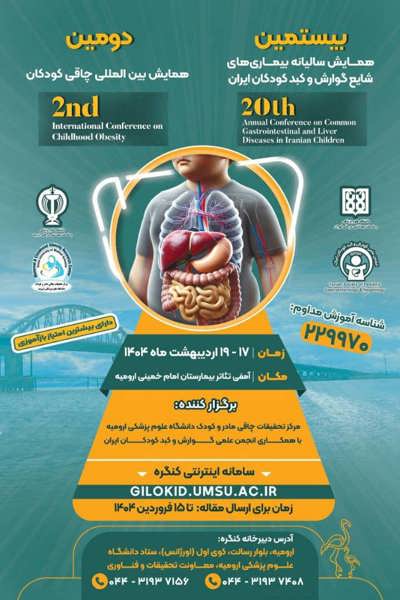0% Complete

صفحه اصلی
/
بیستمین همایش سالیانه بیماری های شایع گوارش و کبد کودکان ایران و دومین همایش بین المللی چاقی کودکان
نویسندگان :
کلمات کلیدی :
چکیده :
لیست مقالات بایگانی شده
Ladan Soltanzadeh - Ali Mirzaee AghGonbad - Shanli Mirzaee
Samaneh Sepahi - Sakineh Nouri Saeidlou - Mohammad Yousefi
Amirhossein Hosseini - Alireza Khalaj - Maryam Barzin - Mina Alibeik - Soheil Omid
Elahe Molaei Moghbeli
Mojtaba Keikha - Roya Kelishadi

